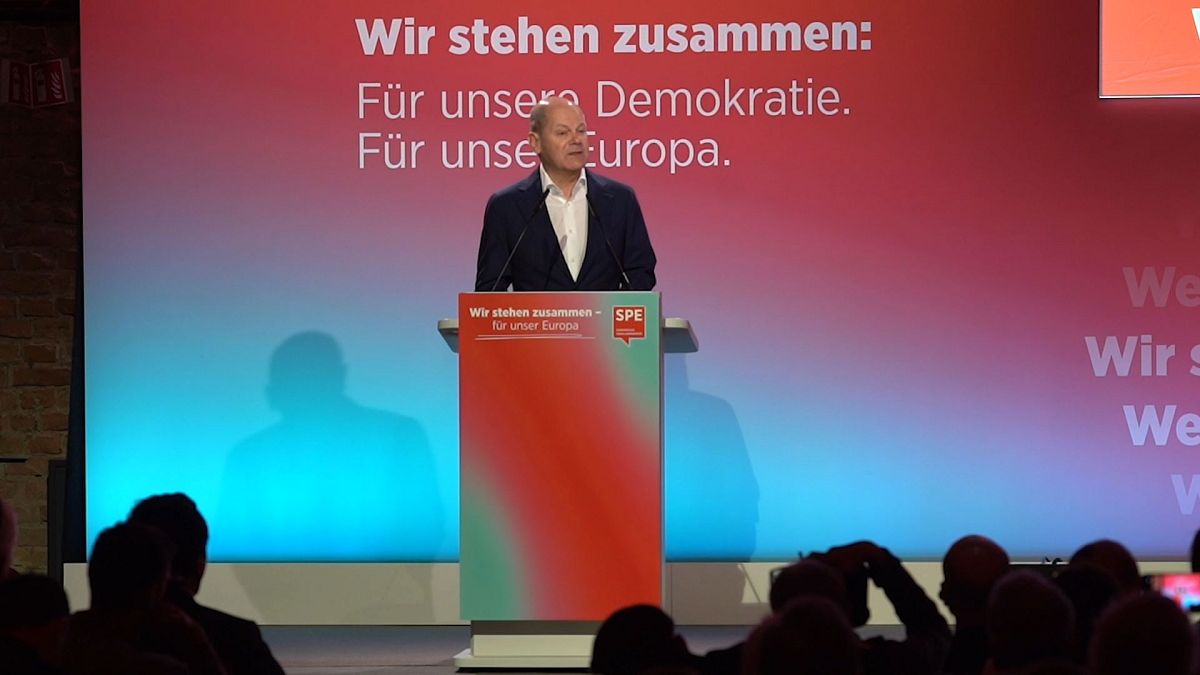Crypto
Ethereum Advisor Hits US Government with Colossal $9.6 Billion Lawsuit

Steven
Nerayoff, a prominent early advisor to the Ethereum network, has filed a $9.6
billion lawsuit against the United States government. The lawsuit, filed under
the Federal Tort Claims Act (FTCA), alleges that federal agents knowingly
pursued false charges against Nerayoff and engaged in harassment and
intimidation tactics, including evidence fabrication.
Nerayoff was
arrested by the FBI in September 2019 alongside his associate Michael Hlady
on charges of extortion. The authorities claimed they threatened to destroy a cryptocurrency startup if it did not pay millions in ether (ETH), the native cryptocurrency of the Ethereum network. However, after a four-year legal
battle, the US government dismissed the case in May 2023.
In the newest
court filing dated last week, Nerayoff’s legal team has argued that the damages
to his reputation and businesses warrant the substantial lawsuit for $9.6 billion.
“Today I
have filed my Federal Tort Claims Act (FTCA) lawsuit suing the U.S. government
for personal damages related to false prosecution,” Nerayoff wrote on X. “It is
time we took a stand against this unrestrained corruption, for all the people
wrongly accused & to ensure justice against those who have been a part of
this.”
BREAKING: Today I have filed my Federal Tort Claims Act (FTCA) lawsuit suing the U.S. government for personal damages related to false prosecution. It is time we took a stand against this unrestrained corruption, for all the people wrongly accused & to ensure justice against… https://t.co/PQZjz6Ewcp
— Steven Nerayoff (@StevenNerayoff) April 9, 2024
Nerayoff, a
serial entrepreneur and blockchain pioneer, is known for his early involvement
in Ethereum since 2015. He has been at the center of various controversies and
legal battles, including making serious allegations against the Ethereum Co-Founder, Vitalik Buterin, and others regarding fraudulent ICOs, personal misconduct, and
collusion with corrupt officials.
“Mr.
Nerayoff’s well-being, personal life and career were irreparably harmed… He
incurred significant legal fees to defend himself while simultaneously losing
income as a result of becoming a feared pariah in the crypto community,” the
filing stated.
The lawsuit
has garnered attention due to the significant damages sought and the
involvement of prominent lawyer Alan Dershowitz as a consultant on the case.
The outcome of this legal battle could have implications for the cryptocurrency
industry and the US government’s handling of such cases.
Nerayoff’s Allegations
against Buterin
In the
past, Nerayoff accused both Vitalik and his father, Dmitry Buterin, of
coordinating efforts to damage his reputation. He cited a video in which
Vitalik allegedly claimed that Nerayoff was involved in significant fraudulent
activities.
Furthermore,
Nerayoff alleged that the Ethereum Foundation, under Vitalik Buterin’s
guidance, abandoned senior researcher and developer Virgil Griffith after his
arrest for helping North Korea evade sanctions. Nerayoff also claimed that
Vitalik Buterin copied his idea of issuing utility tokens and threatened to
sue over his supposed invention.
In recorded
conversations from 2015, Nerayoff criticized Ethereum ‘s financial management,
particularly the decision not to hedge Ethereum’s Bitcoin holdings during price
fluctuations. He also highlighted issues with Ethereum’s early days, including
lack of operational infrastructure, legal and regulatory risks, poor internal
structure, and co-founder conduct.
Steven
Nerayoff, a prominent early advisor to the Ethereum network, has filed a $9.6
billion lawsuit against the United States government. The lawsuit, filed under
the Federal Tort Claims Act (FTCA), alleges that federal agents knowingly
pursued false charges against Nerayoff and engaged in harassment and
intimidation tactics, including evidence fabrication.
Nerayoff was
arrested by the FBI in September 2019 alongside his associate Michael Hlady
on charges of extortion. The authorities claimed they threatened to destroy a cryptocurrency startup if it did not pay millions in ether (ETH), the native cryptocurrency of the Ethereum network. However, after a four-year legal
battle, the US government dismissed the case in May 2023.
In the newest
court filing dated last week, Nerayoff’s legal team has argued that the damages
to his reputation and businesses warrant the substantial lawsuit for $9.6 billion.
“Today I
have filed my Federal Tort Claims Act (FTCA) lawsuit suing the U.S. government
for personal damages related to false prosecution,” Nerayoff wrote on X. “It is
time we took a stand against this unrestrained corruption, for all the people
wrongly accused & to ensure justice against those who have been a part of
this.”
BREAKING: Today I have filed my Federal Tort Claims Act (FTCA) lawsuit suing the U.S. government for personal damages related to false prosecution. It is time we took a stand against this unrestrained corruption, for all the people wrongly accused & to ensure justice against… https://t.co/PQZjz6Ewcp
— Steven Nerayoff (@StevenNerayoff) April 9, 2024
Nerayoff, a
serial entrepreneur and blockchain pioneer, is known for his early involvement
in Ethereum since 2015. He has been at the center of various controversies and
legal battles, including making serious allegations against the Ethereum Co-Founder, Vitalik Buterin, and others regarding fraudulent ICOs, personal misconduct, and
collusion with corrupt officials.
“Mr.
Nerayoff’s well-being, personal life and career were irreparably harmed… He
incurred significant legal fees to defend himself while simultaneously losing
income as a result of becoming a feared pariah in the crypto community,” the
filing stated.
The lawsuit
has garnered attention due to the significant damages sought and the
involvement of prominent lawyer Alan Dershowitz as a consultant on the case.
The outcome of this legal battle could have implications for the cryptocurrency
industry and the US government’s handling of such cases.
Nerayoff’s Allegations
against Buterin
In the
past, Nerayoff accused both Vitalik and his father, Dmitry Buterin, of
coordinating efforts to damage his reputation. He cited a video in which
Vitalik allegedly claimed that Nerayoff was involved in significant fraudulent
activities.
Furthermore,
Nerayoff alleged that the Ethereum Foundation, under Vitalik Buterin’s
guidance, abandoned senior researcher and developer Virgil Griffith after his
arrest for helping North Korea evade sanctions. Nerayoff also claimed that
Vitalik Buterin copied his idea of issuing utility tokens and threatened to
sue over his supposed invention.
In recorded
conversations from 2015, Nerayoff criticized Ethereum ‘s financial management,
particularly the decision not to hedge Ethereum’s Bitcoin holdings during price
fluctuations. He also highlighted issues with Ethereum’s early days, including
lack of operational infrastructure, legal and regulatory risks, poor internal
structure, and co-founder conduct.

Crypto
Cryptocurrency Price Analysis: SHIB, DOGE, and XRP Face Varied Challenges
Throughout much of the month, the majority of top assets maintained a sideways trajectory. While some experienced marginal upticks, others contended with declines. Let’s delve into the price analysis of Shiba Inu (SHIB), Dogecoin (DOGE), and Ripple (XRP). Shiba Inu (SHIB)Coin Edition’s evaluation of SHIB’s 4-hour chart revealed a bearish signal. Specifically, attention was drawn to the Exponential Moving Average (EMA), where the 20 EMA (yellow) crossed below the 9 EMA (blue)—a phenomenon known as a death cross. Moreover, SHIB’s price lingered beneath these indicators, signaling a diminishing strength for the token. Presently, there’s a prospect of SHIB’s price descending
Crypto
Bitcoin (BTC) User Paid Eye-Watering $100,254 for Single Transaction

A single Bitcoin BTCUSD transaction has caught the attention of many owing to its gas fee size. Blockchain analytics platform Whale Alert confirmed that a fee of 1.5 BTC was paid for a single transaction. This fee is equivalent to $100,254 based on the current market value of the top cryptocurrency. This fee is quite higher than the average transaction cost.
This user paid this enormous fee to have their transfer included in an ordinary Bitcoin block. Some of these transactions have been recorded in the past. In September 2023, a Bitcoin user paid a transaction fee of 19 BTC. This was around the time when Bitcoin price was trading at $26,000, hence, the 19 BTC was equivalent to $509,563.
Then again, in January, another BTC account paid over 4 BTC to have their transfer included in an ordinary Bitcoin block. The transaction was therefore charged with a whopping 1,800,890 sat/vB fee.
Potential reason for high transaction fee
Payment of such exorbitant fees usually raise suspicions as many market observers wonder the circumstances that could have led to it. At press time, Bitcoin’s average transaction fee was at a level of $4.696, up from $3.740 on May 4 and down from $6.696 one year ago. This is also a change of 25.57% from yesterday and -29.86% from one year ago, per data from YChart.
It is worth noting that ordinarily transaction fees can fluctuate due to network congestion. It once reached as high as $60 during the 2017 cryptocurrency boom. Hence, this outrageous transaction fee recently recorded could be a result of a mistake or a misconfiguration in transaction software. It could also be potentially for reasons known only to the transaction initiator or even a possible money laundering scheme.
Crypto
Stablecoin Tether steps up monitoring in bid to combat illicit finance

Tether, a cryptocurrency pegged to the U.S. dollar, and blockchain analytics company Chainalysis have launched new tools to identify transactions associated with sanctioned entities and analyse the activity of major holders of the token, Tether said.
Last month, Reuters reported that Venezuela’s state-run oil company PDVSA planned to increase use of Tether in its crude and fuel exports at a time when the U.S. has reimposed oil sanctions.
Crypto Tracker
The Wall Street Journal reported last month that Russian middlemen had used Tether to evade Western sanctions in order to source weapons parts for drones and other military equipment. Tether’s announcement did not mention either report. Asked by Reuters if Thursday’s announcement was related to the report about Venezuelan oil, a spokesperson for Tether said that its work to build a more powerful monitoring tool with Chainalysis had been “in the works for several months.” “Tether has been using Chainalysis data for several years, as the foundation for our investigation and compliance work. Also, Tether has clearly announced its compliance with OFAC/SDN list,” the spokesperson said in emailed comments, referring to the U.S. Treasury’s Office of Foreign Assets Control’s sanctions. Tether has previously said that every action with the cryptocurrency is online and traceable, and “every asset can be seized and every criminal can be caught.”
Tether has grown rapidly in recent years, hitting $100 billion in circulation in March. That growth has been driven by its use as an alternative to the dollar in emerging markets, Tether CEO Paolo Ardoino told Reuters last month.
Stablecoins can be used as a form of payment, as well as to convert in and out of other tokens, such as bitcoin, when trading on crypto exchanges.
Tether, which is registered in Hong Kong and owned by a company registered in the British Virgin Islands, is able to freeze its tokens and has previously said it has done so in response to requests from law enforcement.
-

 News1 week ago
News1 week agoLarry Webb’s deathbed confession solves 2000 cold case murder of Susan and Natasha Carter, 10, whose remains were found hours after he died
-

 News1 week ago
News1 week agoFirst cargo ship passes through new channel since Baltimore bridge collapse
-

 World1 week ago
World1 week agoHaiti Prime Minister Ariel Henry resigns, transitional council takes power
-

 World1 week ago
World1 week agoSpanish PM Pedro Sanchez suspends public duties to 'reflect'
-

 World1 week ago
World1 week agoUS secretly sent long-range ATACMS weapons to Ukraine
-

 News1 week ago
News1 week agoAmerican Airlines passenger alleges discrimination over use of first-class restroom
-

 Education1 week ago
Education1 week agoVideo: Johnson Condemns Pro-Palestinian Protests at Columbia University
-

 Movie Reviews1 week ago
Movie Reviews1 week agoAbigail Movie Review: When pirouettes turn perilous






:max_bytes(150000):strip_icc():focal(745x234:747x236)/ryder-harold-dean-lilly-050424-8effe989494f4c7391a21e1b3db77f33.jpg)













